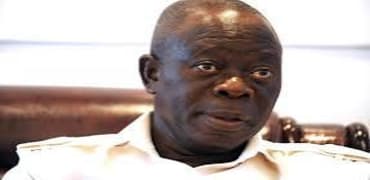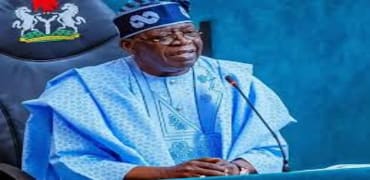Tax Reform Tug-Of-War: How Nigeria's VAT Battle Could Reshape The Nation's Future
"Tax Reform Tug-of-War: How Nigeria’s VAT Battle Could Reshape the Nation’s Future"
By Achimi Muktar
A fierce battle is unfolding between Northern political elites and the Federal Government over a proposed tax reform that could drastically alter Nigeria’s revenue-sharing formula. At the heart of the controversy lies an amendment to the Value Added Tax (VAT) Act that has sparked heated debates across the nation.
The contentious amendment proposes a shift to the “derivation principle,” where VAT revenue is distributed based on where goods and services are consumed and where businesses generating the tax are headquartered. Northern leaders fear this change could disproportionately benefit the South, given its economic dominance and larger consumption base.
Northern Leaders Raise the Alarm
Northern governors and leaders argue that the reform would further widen the existing economic disparity between regions. Senator Kawu Samaila of Kano South District expressed concerns, emphasizing that the North’s challenges extend beyond tax reforms.
“The challenges affecting economic development in the North go beyond mere tax reforms. It is essential for us to engage in meaningful discussions. Our critical issues in the region extend beyond VAT,” he stated.
Public affairs analyst Dr. Majeed Dahiru echoed these sentiments, stressing that Northern leaders’ resistance stems from the derivation model’s potential to reduce their states’ revenue share.
“The concern isn’t about increasing taxes or expanding the tax base—it’s about the redistribution of VAT revenue,” Dr. Dahiru explained. “The derivation principle could lead to some states receiving less than they currently do, but it’s also one of the most progressive approaches we’ve seen in Nigeria’s fiscal history.”
Advocates Defend the Reform
Proponents of the amendment argue that the current VAT system is inequitable, with Southern states subsidizing regions that restrict the sale of taxable goods like alcohol. Baba Yusuf, a policy analyst, called for a strategic shift in mindset among Northern leaders.
“I’m disappointed with the transactional approach of Northern elites,” Yusuf remarked. “This reform encourages productivity and fairness by aligning revenue with actual consumption. The rent-seeking mentality must give way to innovation and value creation.”
Yusuf’s perspective underscores the belief that the derivation principle could stimulate regional development by incentivizing states to improve their local economies.
The Politics of Tax Reform
While the economic implications dominate the discussion, political undertones are impossible to ignore. Dr. Muda Yusuf, CEO of the Centre for the Promotion of Private Enterprise, described the debate as inherently political.
“This issue is more political than economic,” Yusuf noted. “If the derivation model benefits the South, Northern leaders will naturally resist. It’s understandable, but we must tread carefully to avoid deepening regional divides.”
Dr. Yusuf suggested maintaining the status quo to preserve national unity, but others believe the reform is a necessary step toward equity and progress.
A Trust Deficit Fuels Public Skepticism
The VAT controversy also highlights a deeper issue: the public’s growing distrust in government initiatives. Activists like Dr. Ibrahim Zikirullahi of the Resource Centre for Human Rights and Civic Education argue that citizens view reforms with suspicion due to perceived insincerity and mismanagement.
“From high electricity tariffs to the Naira’s devaluation, people feel abandoned by a government that asks them to tighten their belts while overspending on itself,” Zikirullahi said. “For any reform to succeed, the government must rebuild trust and demonstrate genuine commitment to improving lives.”
A Path Forward
Despite the polarized debate, there is room for dialogue. Senator Kawu Samaila called for open discussions to address the concerns of all stakeholders.
“As lawmakers, we need to engage in dialogue and persuasion. Only by understanding each other’s perspectives can we reach a consensus that benefits all Nigerians,” he stated.
The fight over Nigeria’s tax reform bill is about more than revenue; it’s about the nation’s fiscal future and the delicate balance of regional equity. As the discourse continues, one question looms large: will this reform bridge divides or deepen them further?
For now, the answer lies in the willingness of leaders—and citizens—to engage in meaningful compromise.





















